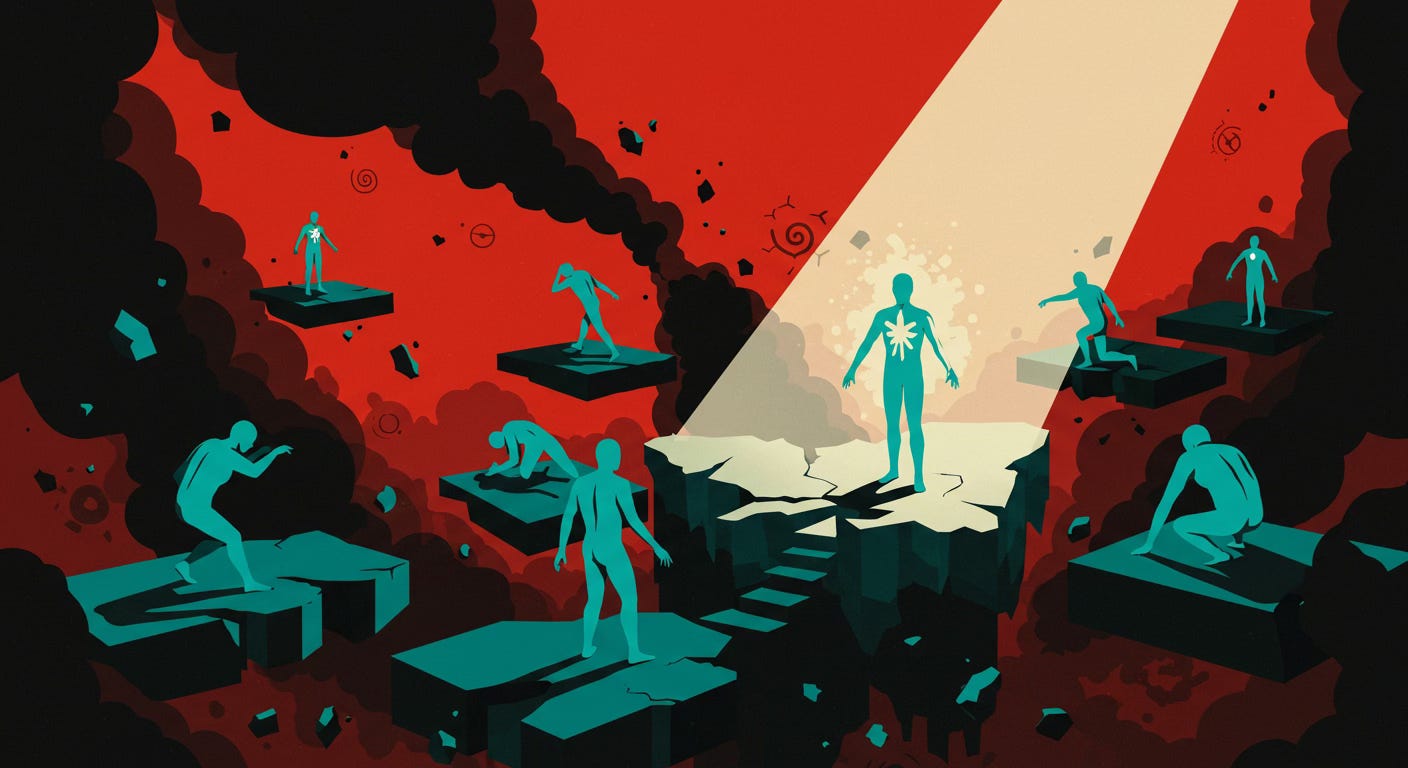Among all human emotions, fear is perhaps the most cunning. It rarely announces itself boldly. More often, it operates in silence—unseen yet deeply influential. Franklin D. Roosevelt’s famous statement, “The only thing we have to fear is fear itself,” was not mere wartime rhetoric; it was a profound psychological insight into the self-imposed limitations that fear generates. In daily life, it is not the event we dread that destroys us, but the anticipation of it—our fear of it—paralyzing action before it can even begin.
Take the example of mathematics, a subject universally dreaded by many. How often is the poor performance in math truly a matter of intellectual incapacity? Far less than commonly believed. A closer look reveals that much of the struggle begins before any equation is attempted. The fear of not understanding, of looking foolish, of failing once again—these create a mental blockade. The mind, preoccupied with these anxieties, refuses to engage fully. In this way, the very fear of failure becomes the architect of failure itself. The poor grade, then, is not proof of incapacity but evidence of a fear-driven self-fulfilling prophecy.
Driving a car presents another illustrative case. Some people delay learning for years, not because they doubt the mechanics of driving, but because they imagine themselves stalling in traffic, failing the test, or worse, causing an accident. Here again, fear does not arise from actual experience but from imagined catastrophe. These scenarios play out in the mind long before the ignition is ever turned. When such fears fester, they become indistinguishable from actual inability, making the imagined danger seem real and justifying the avoidance.
Consider also the realm of human relationships—perhaps one of the most fear-charged territories in daily life. The fear of rejection often prevents individuals from expressing interest, admiration, or even affection. A person may admire someone deeply yet say nothing, paralyzed by the anticipated embarrassment of a cold response. This unspoken fear creates a false impression of disinterest, and opportunities for connection quietly dissolve. The perceived failure—the solitude—is not born of unworthiness but of unacted intention obstructed by fear.
Professional life, too, is rich with such concealed examples. Many never apply for roles they’re capable of performing, never pitch ideas they’ve long nurtured, or never speak in meetings though they have much to say. When asked why, they’ll cite external factors: competition, bad timing, insufficient experience. But beneath those rationalizations often lies a deeper reason—fear of being judged, failing, or appearing overconfident. Fear, in this sense, is not merely a brake on ambition; it is a thief of opportunity dressed as caution.
What makes fear so powerful is not its content but its subtlety. It disguises itself as prudence, modesty, or realism. We think we are being reasonable by avoiding challenges, but in truth, we are surrendering to illusions. Fear is a projection, a mental rehearsal of failure without the trial. It deters the trial altogether, ensuring that the feared outcome becomes more likely—not because it was inevitable, but because it was never confronted.
To overcome fear, one must first recognize it as an illusion that masks itself as certainty. When a child touches fire once, the fear of pain is legitimate. But the adult who never returns to the kitchen because of that single experience allows fear to exceed its usefulness. Rational fear protects life; irrational fear distorts it. The fear of fear is irrational because it creates paralysis without danger. It hinders growth not because of actual risk but because of imagined humiliation or failure.
In many cases, progress in any domain—academic, emotional, professional—requires not talent or preparation but the simple courage to begin. And yet, beginning is the very point where fear whispers, “You are not ready.” The antidote is rarely a perfect plan or complete preparation; it is a decisive act that pierces through the paralysis. Once action begins, fear often dissipates. As Goethe said, “Boldness has genius, power, and magic in it.” Action neutralizes the poison of fear.
Real-life examples of transformation after confronting fear abound. The student who finally asks questions in class discovers that confusion is common. The shy individual who opens up finds mutual interest. The aspiring professional who risks failure learns the game of growth. These victories were not born of new skills acquired, but of internal barriers dismantled. The courage to act dissolved the fear, and with it, the imagined limits.
The paradox is clear: most of what we fear never happens. But by fearing it, we manufacture the consequences ourselves. We fail in advance of the challenge, not because we are weak, but because we believe we are. Fear becomes a prophecy we unknowingly fulfill. The truth is that the threshold we dare not cross is rarely locked—it is merely guarded by our doubts in disguise.
To live freely is not to live without fear, but to recognize fear’s nature and refuse to be governed by it. Every unrealized potential, every paused dream, every postponed decision—at their root lies fear. And until we confront this fear of fear, we allow it to silently edit the story of our lives, striking out the most vital chapters before they are written.
In conclusion, the only legitimate fear is fear of fear itself because it is the most insidious form of self-sabotage. It builds walls that do not exist, creates defeats that haven’t occurred, and delays actions that could change everything. To act despite fear is not recklessness—it is liberation. And in that courage, we reclaim not only our future, but our very selves.

